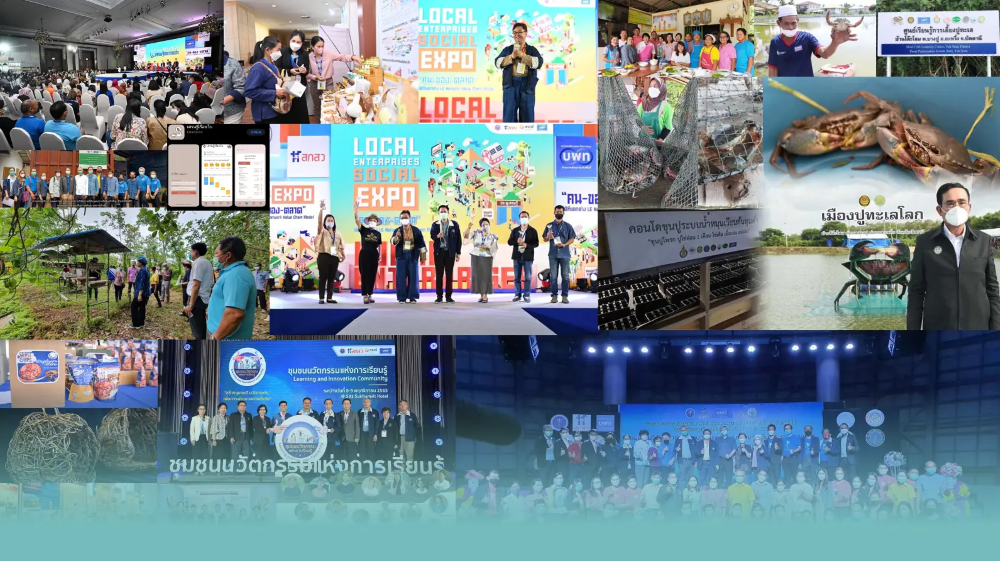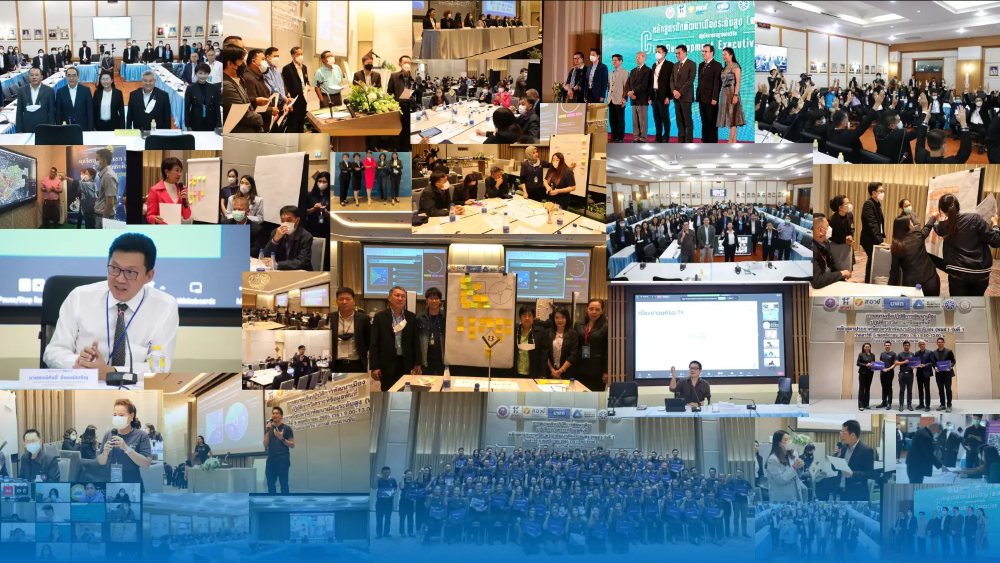
Knowing the five academic institutions of "Thatchapoom" – Educational Institute of the Nation
Thatchapoom Academic Institute is a group of knowledge institutions and knowledge platforms for the development of connected and synthesized areas of research networks, institutions, and research centers of the country related to the development of areas of science and art that contribute to the improvement of quality of life, sustainability, and strengthening opportunities and fairness for the people of the area.
Thatchapoom is based on the concept of upgrading the knowledge infrastructure system of society, including the mechanisms and processes that will be linked to knowledge institutions and academic networks for the development of different areas of the country, such as the network of universities, civil society, and specialized knowledge institutions. Their work is accomplished through collaboration with the key research plans funded by the Regional Development Capital Management Unit (SIDS). This is to enhance the theoretical concepts and create a body of knowledge that can be exported internationally and drive policy proposals to create changes leading to the development of the area and inequality reduction.
Five academic institutes under the Thatchapoom Academy include:
- Cultural Capital Management Institute

“Thai cultural capital” can support positive spatial change, such as changing the foundational economy by developing a unique local culture capital as a new cultural product and service that retains the original values and identities. Projecting a new identity of the local community with cultural resources and promoting the return of traditional cultures that have been disappearing can result in job creation, career creation, and the influx of money into the area – these constitute the process of area development driven by culture, known as the "cultural economy," leading to local consciousness-building and cultural capital transfer to future generations.
- Local Economy Development Institute

The institute has pioneered a knowledge set on community economy and discovered the “joints” that are connected to the area's economic system by unfolding the network value chain to create a fair income and revenue share distribution. To "drive the community economy" by creating a community economy, planners must combine the sciences of business administration, economics, sociology, and anthropology.
- Poverty Alleviation & Social Mobility Enhancement Institute

The conceptual framework is to increase the efficiency in addressing poverty in a precise and comprehensive manner, based on information, knowledge, and participation of all relevant sectors to address poverty and inequality in a timely and appropriate manner, in the context of each area of Thailand, solving structural problems, creating a good quality of life and a fair society in the long term.
By encouraging the use of research and innovation in planning, linking and integrating work, encouraging the poor to have access to knowledge, technology, innovation, and opportunities to raise themselves above the poverty line, and elevating social mobility, it is necessary to introduce knowledge, technology, and innovation. Sandbox platforms, policies, and models are used to help and solve problems of poor households that can raise income or solve problems of rural and urban communities, such as career, education, learning, and access to technology. This innovation enhances the potential, skills, opportunities, and income of poor, disadvantaged, and vulnerable target groups.
- City Development Institute

The framework is to diversify the prosperity center and improve structural development and management of the "macro level." The units of analysis – consisting of the local area, province, and region – should be taken into account to attract prosperity and stimulate the economic absorption mechanism of the locals. A mechanism to develop the area for local government should be established and worked on by the governor to strengthen the subdistrict and municipal departments.
Also, ad hoc arrangements in specific areas should be created to enhance economic territories, leading to increased investment value in border areas, enhanced cities, and border communities, which should lead to an improved quality of life and the reduction of inequality between people in border areas, which are common economic territories between Thailand and neighboring countries, the connecting points between countries.
- Local Government Capacity-Building Institute

A framework to enhance the knowledge infrastructure system through local development with information mechanisms, knowledge, and national cooperation should be demonstrated. This can be done by collaborating with local governments, the main mechanism of area development, to achieve the expansion of the results and impact from research to concrete changes in the area, as well as linking and pushing the policy levels, working down to practices that truly meet the needs of the people. This will lead to acquiring a new social ecosystem to develop the area.
The operation is carried out as “Co-work & Co-funded” with local government, as follows:
- Developing knowledge and mechanisms for organizational change and digital transformation in local government;
- Developing knowledge and financial innovation, and public finance and resource management for local governments through financial and fiscal innovation;
- Creating a new mechanism for knowledge and technology transfer of local administrative organizations and networks;
- Developing policies and mechanisms for collaboration and investment between local administrative organizations, public sectors, or public private partnership in various forms and mechanisms to promote social enterprise at the area level;
- Developing policies and mechanisms to link with the public sector through open data and deliberative spaces.
Source: Office of the National Council for Higher Education Policy, Science, Research and Innovation (NSTDA)
19 Chamchuri Square Building, 14th Floor, Phayathai Road, Pathumwan, Bangkok 10330
Tel. +66 2109 5432